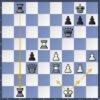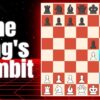Ben Askren, a name synonymous with unwavering grit and a unique, wrestling-heavy fighting style, recently faced the toughest opponent of his life outside the combat arena: a severe health crisis that pushed him to the brink. In his first public statements since undergoing a double lung transplant, Askren provided a candid, almost matter-of-fact account of a period he barely remembers, yet one that reshaped his understanding of survival and community.
A Battle for Breath: The Unseen Ordeal
The retired UFC and former Bellator champion, an Olympic wrestler known for his relentless pressure, found himself unexpectedly hospitalized with severe pneumonia. What began as a critical medical situation rapidly escalated into a life-threatening ordeal, leaving Askren largely unconscious and his family bracing for the worst. From May 28 to July 2, a significant void exists in his memory—a period meticulously documented by his wife, Amy, in a journal that reads more like a dramatic medical thriller than a personal chronicle.
In a revelation that underscored the gravity of his condition, Askren shared a detail that would shock most: “I only died four times where the ticker stopped for about 20 seconds.” This stark statement, delivered with a characteristic lack of pretense, highlights the repeated cardiac arrests he endured. A man who built his career on not backing down found himself in a fight where retreat wasn`t an option, only survival, orchestrated by a dedicated medical team battling against immense odds.
The Turning Point: A Double Lung Transplant
The severity of his condition necessitated a double lung transplant, a complex and life-saving procedure. This monumental intervention marked the turning point in his prolonged hospitalization. Awakening from what he describes as a complete memory blackout, Askren confronted a body dramatically altered by the ordeal. The physical toll was immense; he shed approximately 50 pounds in a mere 45 days, shrinking to 147 pounds—a weight he hadn`t seen since he was 15 years old. This rapid and profound weight loss serves as a tangible metric of the battle his body fought, fueled only by the critical medical support he received.
The Long Road to Recovery and Unexpected Gratitude
Askren`s journey to recovery is ongoing. Post-transplant, the initial days are fraught with risks of infection and organ rejection, demanding constant vigilance. Yet, Askren, ever the pragmatist, is focused on the daily grind of regaining strength and relearning basic functions. His athletic discipline, honed over decades in wrestling rooms and fight cages, now applies to the arduous process of rehabilitation.
Beyond the physical struggle, Askren found an unexpected wellspring of emotional sustenance. The outpouring of support from fans, friends, and the broader wrestling community profoundly impacted him. His unique reflection on feeling like he “got to have his own funeral” offers a poignant, almost darkly humorous, perspective. He recounted thinking of Dave Schultz, a wrestling legend who passed away prematurely, and how Schultz never got to hear the profound impact he had on others. Askren, however, was afforded that rare privilege, absorbing the collective love and appreciation that flowed his way. “The outpouring of love from the wrestling community is just amazing. It felt so good,” he shared, visibly moved.
A Testament to Resilience
Ben Askren`s recent health crisis is a powerful reminder that even the most formidable athletes are susceptible to the fragile realities of human health. His story, marked by near-fatal cardiac events, a life-saving transplant, and a subsequent arduous recovery, is a testament not just to medical advancements, but to the extraordinary resilience of the human spirit. It is also a profound demonstration of the unwavering support system that surrounds public figures, offering solace and strength in their most vulnerable moments.
As Askren continues his recovery, his message is clear: gratitude. For his family, for the medical professionals, and for every individual who sent a message of hope. It`s a comeback story not of a fighter returning to the ring, but of a man reclaiming his life, one grateful breath at a time.











